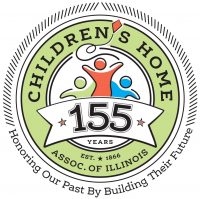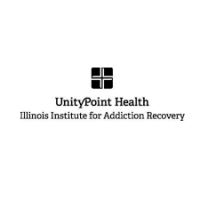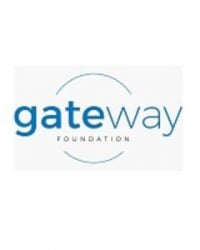Human Service Center on Richard Pryor Place
Drug Rehab Center in Peoria, Illinois
The Human Service Center on Richard Pryor Place in Peoria, Illinois is a licensed facility that provides personalized and comprehensive care for substance use disorders and mental health issues through evidence-based programs and a compassionate approach to recovery, with awards recognizing their quality and dedication.
About This Peoria, IL Facility
Located in Peoria, Illinois, the Human Service Center–Community Crisis Center stands out as a 12 step focused drug and alcohol rehab facility offering a comprehensive range of services including crisis intervention, medically supervised detox, outpatient care, and aftercare support. With dedicated programs for young adults, persons with HIV/AIDS, and individuals confronting co-occurring addiction and mental illness, this facility aims to cater to diverse needs within its 12-bed capacity.
This center is recognized for its high standards and holds accreditations from SAMHSA and the Joint Commission. Their approach is comprehensive, covering everything from mental health assessments and FDA approved medication for detox, to intensive outpatient services and aftercare. The facility’s multifaceted programs are designed to support clients throughout their recovery journey, ensuring a tailored experience that addresses each individual's unique challenges.
- Personalized Treatment Plans: Emphasizing the importance of addressing the individual needs of each client, the center provides personalized treatment planning.
- Continuum of Care: Offers a seamless range of services from detoxification to aftercare, supporting clients at every stage of their recovery.
- Specialized Programs: Includes unique offerings such as nicotine replacement programs and services for individuals living with HIV/AIDS or co-occurring mental health issues.
The Human Service Center–Community Crisis Center treats a variety of addictions including those related to drug and alcohol use, providing care through methods such as cognitive-behavioral therapy (CBT) within their inpatient and outpatient programs. Their approach incorporates intensive outpatient services, standard outpatient treatment, and aftercare, catering to clients’ specific needs for a sustainable recovery.
Genders
Ages
Modality
Additional
Accreditations
State License
SAMHSA

JCAHO
Conditions and Issues Treated
Opioid addiction treatment facilities in Illinois, like Human Service Center on Richard Pryor Place cover both illegal and prescription opioids abuse. Most plans include detoxification and subsequent medications to ease the process. Behavioral therapies and counseling are also necessary to resolve the root cause of addiction.
Levels of Care Offered
This center offers a variety of custom treatment tailored to individual recovery. Currently available are Aftercare Support, Detox, Inpatient, Intensive Outpatient, Outpatient, with additional therapies available as listed below.
A detox program helps the person physically withdraw from drugs and helps them track their progress. So, suppose the person isn’t ready for sobriety (or relapses). In that case, the treatment professionals can catch it early and help re-orient them towards recovery.
In order to focus on the psychological aspects of addiction, one must first address the physical symptoms of withdrawal.
Withdrawal symptoms can be painful, even fatal, so managing the detox process carefully is critical. Severe withdrawal symptoms are often treated with more advanced pharmaceutical interventions. Nausea and headaches are common side effects of detoxification.
Inpatient rehabilitation aims to treat severe addictions and co-occurring disorders. Depending on individual requirements, the duration of the stay at Human Service Center on Richard Pryor Place ranges from four weeks to six months. Illinois inpatient recovery guarantees that the patient resides in an environment free of drugs.
An intensive outpatient treatment program is set up for those struggling with an addiction to begin the recovery process. Patients come to Peoria, IL to Human Service Center on Richard Pryor Place for therapy, support, programs, and medical supervision. Intensive outpatient treatment is often very tightly scheduled and heavily structured.
Treatment for substance abuse does not cease after an individual successfully completes a detox or rehabilitation program. A vital follow-up treatment service is aftercare support provided to individuals at Human Service Center on Richard Pryor Place in Illinois after they attain initial sobriety.
Aftercare support often takes the following forms: 12-Step Programs, Outpatient Treatment Programs, and Support Groups. The most effective aftercare programs are tailored to meet an individual’s specific needs and circumstances.
Human Service Center on Richard Pryor Place‘s Therapies & Programs
Treatment programs include individual therapy for the greatest chances of success. Customized individual therapy is counseling involving you and your Human Service Center on Richard Pryor Place counselor. Individual therapy leads to greater peace and understanding about your triggers for addiction.
Spousal relationships bear the brunt of alcohol and drug dependence. It becomes critical to submit the relationship to couples therapy to prevent straining it further. Some facilities like Human Service Center on Richard Pryor Place in Peoria, IL offer couples therapy options to manage intimate partnerships amid the recovery process. Other couples-focused treatment plans can provide the patient and their partner tools to get things back to normal.
When family members are more proactive and involved in the treatment procedure, it encourages the patient to advance his or her progress. Moreover, it shouldn’t be ignored that genetics play a role when it comes to addiction, so it’s better to approach the problem as a unit. Also, with proper education, family members can help an individual avoid addiction triggers and guide him or her in making lifestyle changes necessary for his or her sobriety.
Cognitive Behavioral Therapy (CBT) is a type of psychotherapy that focuses on the underlying thoughts and behaviors that caused the problem of addiction in the first place and may cause a relapse. Negative feelings are common in substance abuse disorders, and if not recognized, they can cause co-occurring disorders.
CBT involves strategies that help to change the thinking and behavioral pattern by cognitive restructuring. In simple terms, it helps to remove negative thoughts and provides long-term benefits. Also, CBT promotes self-awareness, self-control, and healthy ways to respond to negative thoughts. It can be administered as a mono-therapy as well as a part of combination therapy.
In the midst of an addiction certain healthy habits and behaviors can be forgotten or discarded altogether. While in treatment you will learn life skills that will help you successfully maintain sobriety and rebuild your life in Peoria, IL. Some examples of this are time management, social skills, nutrition, hygiene, stress management and taking care of yourself.
The 12-step program is a part of substance abuse treatment. In this program, peers help each other to achieve the goal of abstinence. It was initially developed by the founders of Alcoholics Anonymous. Due to its huge success, the 12-step program is included as a part of other substance abuse treatments.
The 12 steps guide at an individual level. It begins with the individuals accepting that they are addicts, and they understand its consequences. It is followed by focusing on the recovery process and making amends for hurting others. The program provides the benefit of cognitive restructuring, which refers to the process of change in the negative thoughts that leads to long-term benefits.
Payment Options Accepted
For specific insurance or payment methods please contact us.
Is your insurance accepted?
Ask an expert, call (888) 674-0062
Additional Details
Specifics, location, and helpful extra information.
Peoria, Illinois 61605 Phone Number(309) 671-8084 Meta DetailsUpdated April 15, 2024
Staff Verified
Patient Reviews
There are no reviews yet. Be the first one to write one.
Peoria, Illinois Addiction Information
In 2016, more than 2,350 Illinoisans died from drug overdoses. More than 5,500 deaths annually occur in Illinois due to the abuse of alcohol and other drugs. 7.17% of Illinois residents reported using illicit drugs in the past month (2018). Substance abuse costs the state approximately $3.5 billion every year.
Peoria, Illinois has seen a large impact of drug addiction and abuse in the community. According to recent statistics, about 9,000 people in Peoria struggle with drug addiction. Drug overdoses accounted for more than half of all unintentional deaths in Peoria between 2011 and 2015. Drug treatment in Peoria, Illinois, can vary in terms of its approach including medication-assisted treatment, individual and group counseling, peer support, and aftercare services.
Treatment in Nearby Cities
- Gurnee, IL (145.8 mi.)
- East Peoria, IL (2.0 mi.)
- South Holland, IL (121.6 mi.)
- Lake Forest, IL (141.8 mi.)
- Geneseo, IL (59.8 mi.)
Centers near Human Service Center on Richard Pryor Place
The facility name, logo and brand are the property and registered trademarks of Human Service Center on Richard Pryor Place, and are being used for identification and informational purposes only. Use of these names, logos and brands shall not imply endorsement. RehabNow.org is not affiliated with or sponsored by Human Service Center on Richard Pryor Place.








